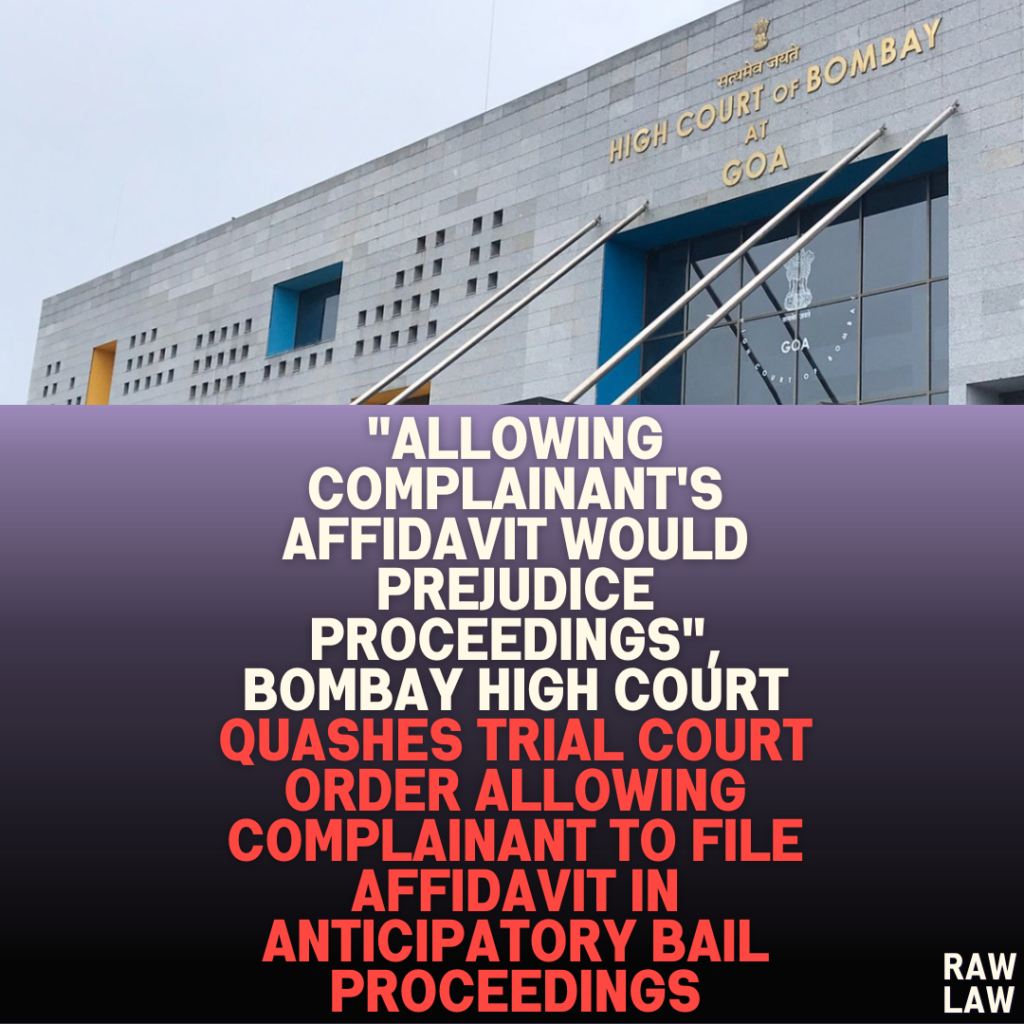Court’s Decision:
The Bombay High Court quashed the trial court’s order that allowed the complainant to file a reply affidavit along with documents in an anticipatory bail application. The Court held that such an allowance would unjustifiably expand the scope of the matter and interfere with the prerogative of the Investigating Agency.
Facts of the Case:
The case involved two criminal writ petitions filed by the petitioners challenging the trial court’s decision to permit the complainant, Chowgule and Company Pvt. Ltd., represented by Harsh Shah, to file an affidavit in reply with supporting documents in ongoing anticipatory bail proceedings. The petitioners objected to this, arguing that while the complainant had the right to intervene and make oral arguments, the filing of an affidavit could lead to a parallel investigation, which is beyond the legal limits of the complainant’s participation.
The complaint alleged offenses under various sections of the Indian Penal Code, including cheating and criminal conspiracy. The trial court had initially allowed the complainant to file the affidavit, which led to the filing of these petitions.
Issues:
The central issue was whether the trial court’s order permitting the complainant to file a reply affidavit and documents in an anticipatory bail application was legally justified, considering the established limits on a complainant’s role in such proceedings.
Petitioner’s Arguments:
The petitioners argued that the complainant’s role in bail proceedings should be limited to making oral arguments or filing written submissions, without the right to file affidavits or documents that could influence the prosecution’s strategy or expand the scope of the proceedings.
Respondent’s Arguments:
The complainant argued that their participation, including the filing of an affidavit, was necessary to present a complete picture to the court and assist in the fair adjudication of the anticipatory bail application.
Court’s Analysis:
The High Court referred to relevant legal precedents, including the Supreme Court’s decision in Jagjeet Singh, which clarified the extent of a complainant’s involvement in criminal proceedings. The Court emphasized that the complainant’s participation should not infringe upon the investigative prerogatives of the police or lead to a parallel investigation. Allowing the complainant to file an affidavit and documents would exceed these limits and potentially prejudice the proceedings.
Conclusion:
The Bombay High Court quashed the trial court’s order and allowed the complainant to participate by making oral arguments and submitting written submissions, but not by filing affidavits or additional documents.

Posted inNews


